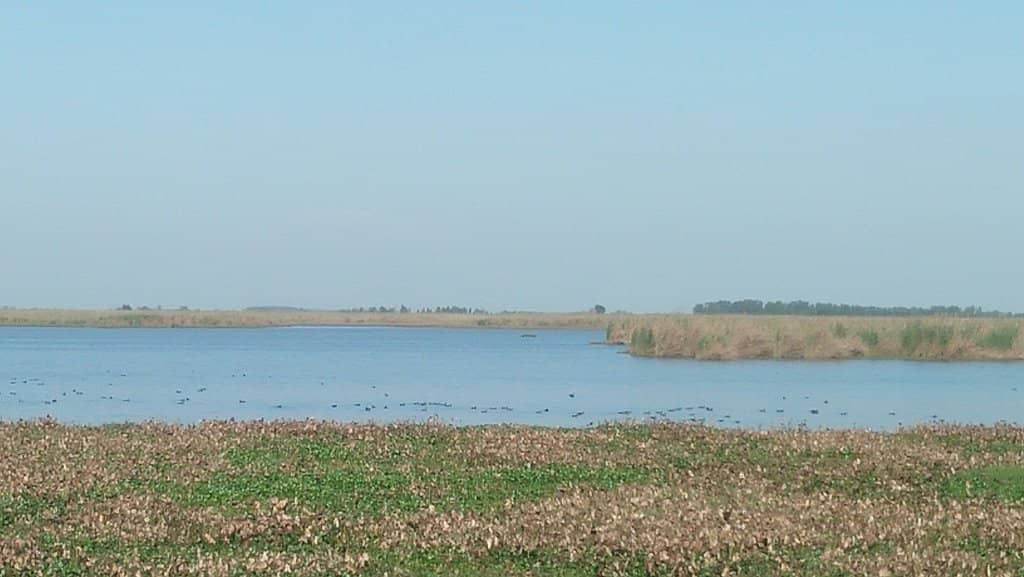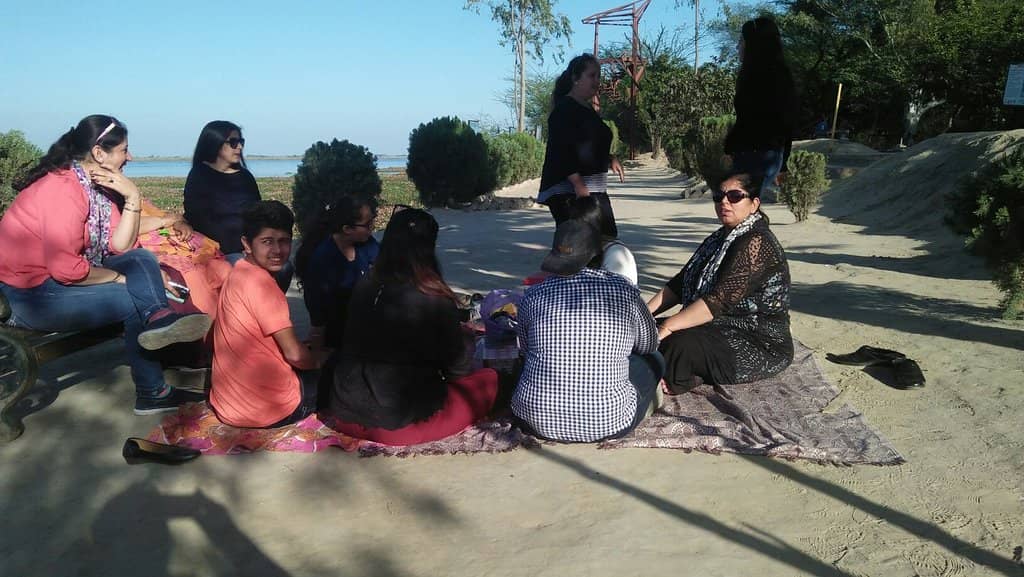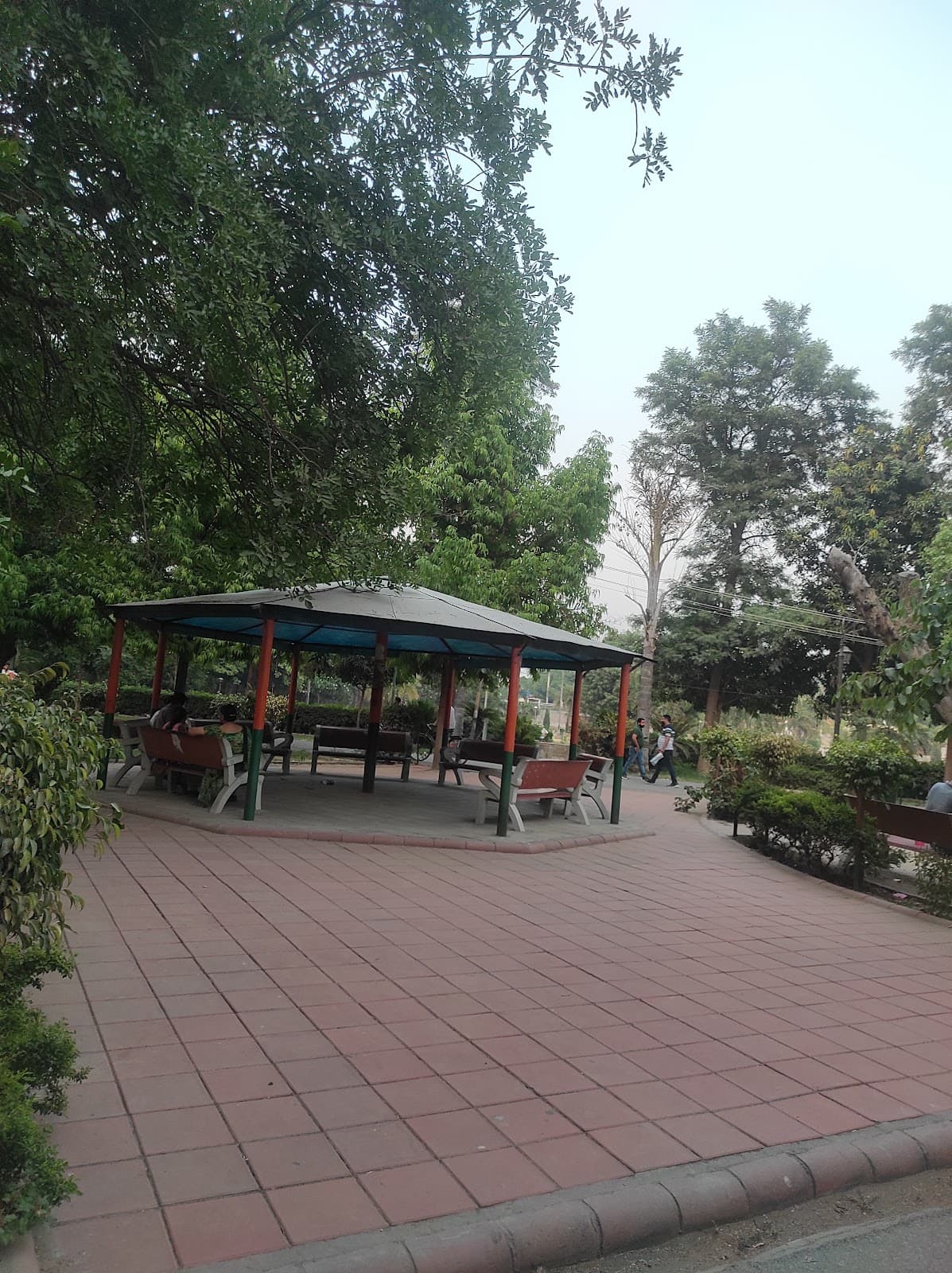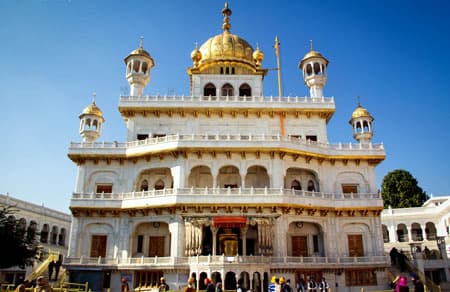
Harike Wetland and Bird Sanctuary
A Ramsar-designated wetland sanctuary in Punjab, vital for thousands of migratory birds and diverse aquatic life.
Highlights
Must-see attractions

Social
From TikTok & Reddit
Best Time
Peak migratory bird season

Harike Wetland and Bird Sanctuary
Best Time
Peak migratory bird season
Highlights
Must-see attractions
A Ramsar-designated wetland sanctuary in Punjab, vital for thousands of migratory birds and diverse aquatic life.
"A must-visit for birdwatchers, offering a spectacular display of migratory birds in a vital wetland habitat."

🎯 Arrive by 3 PM
To fully enjoy the sanctuary, aim to arrive by 3 PM. Experience the magic before closing time!
🎟️ Entry Fee
A small fee of around 40 INR for two adults applies. Tickets can be purchased at the spot.

Highlights
Discover the most iconic attractions and experiences

Migratory Bird Spectacle
The entire wetland
Witness thousands of migratory birds from Siberia and beyond during winter months. A true birdwatcher's paradise!

Confluence of Rivers
Beas and Sutlej rivers
See where the Beas and Sutlej rivers meet, creating this vast and vital wetland ecosystem.

Diverse Wildlife
Wetland and surrounding areas
Beyond birds, spot smooth Indian otters, jungle cats, and various fish and turtle species.
Plans like a pro.
Thinks like you
Planning Your Visit
Best Time for Birdwatching
Navigating Harike Wetland
Best Times
Insider Tips
from TikTok, Instagram & Reddit
🎯 Arrive by 3 PM
To fully enjoy the sanctuary, aim to arrive by 3 PM. Experience the magic before closing time!
🎟️ Entry Fee
A small fee of around 40 INR for two adults applies. Tickets can be purchased at the spot.
💧 Bring Bottled Water
Stay hydrated during your visit. Remember to take all your trash with you and avoid littering.
🚶♀️ Explore Near Reeds
For rarer bird sightings, venture towards the reeds. Common birds are visible near the barrage.
Tips
from all over the internet
🎯 Arrive by 3 PM
To fully enjoy the sanctuary, aim to arrive by 3 PM. Experience the magic before closing time!
🎟️ Entry Fee
A small fee of around 40 INR for two adults applies. Tickets can be purchased at the spot.
💧 Bring Bottled Water
Stay hydrated during your visit. Remember to take all your trash with you and avoid littering.
🚶♀️ Explore Near Reeds
For rarer bird sightings, venture towards the reeds. Common birds are visible near the barrage.
⏰ Opening Hours
The sanctuary is open daily from 8:30 AM to 5:00 PM. Plan your visit accordingly.
What Travellers Say
Reviews Summary
Visitors rave about Harike Wetland as a must-visit for birdwatching, especially during winter when thousands of migratory birds arrive. The natural habitat and the confluence of rivers are highlights, though some wish for more accessible boat safaris into deeper parts of the wetland. Concerns exist regarding invasive weeds and pollution impacting the ecosystem.
"What a habitat.... a must place for some rare birds. They should allow some boat safari to some of the inside parts. Most common birds can be seen near the barrage and near the interpretation centre. For more exotic ones, one has to go near the reeds near the village."
Debankur Biswas
"Harike is one of the most important Wild Life Sanctuaries of not Only Punjab but also of India being recognized throughout the world. Situated on the confluence of the river Beas and Sutlez at the Ferozepur and Amritsar border the sanctuary encompass an area of approximately 86 sq km. The area was declared as a Wild Life Sanctuary in 1999 and because of its importance as a wetland of international stature, it was declared a Ramsar site by the International Body of Wetlands under the UNDP in 1990.
The sanctuary is a bird watchers paradise and attracts thousands of migratory birds during winter, some from as far off as Siberia and the Arctic. It is a refuge for a large number of resident and migratory birds. Some 45,000 ducks have been recorded here during the peak migratory season. The wigeon, common teal, pintail, shoveller and brahminy ducks are commonly seen during the winter. The lake is particularly famous for diving ducks, such as the crested pochard, common pochard and tufted ducks which occur in very large numbers. Around 375 bird species have been recorded; 40 species were long distance migrants which pass through or winter at Harike lake. Apart from avifauna, some 7 species of turtle and 26 species of fish have been recorded. The mammals found at Harike include the smooth Indian otter, the jungle cat, jackal, Indian wild boar and the common mongoose.
The major problems facing the Sanctuary are encroachments on the wetland habitat, widespread infestation of water hyacinth weed which is slowly chocking the system and reducing the available surface area, siltation and the resultant fall in the volume of water, drainage of untreated and toxic industrial effluents into the system from big cities like Ludhiana , Jallandhar and Kapurthala, illegal fishing and poaching of birds etc."
Zubair Ul Islam
"Be there by 3pm if you want to enjoy the place in full. Or the best time will be 9am if you donot want any disturbance from co-tourists. Wonderful place. Thousands of birds. Can also see the birds nests."
Rajesh Bansal
What People Like
What People Dislike
Frequently Asked Questions
🚇 🗺️ Getting There
Harike Wetland is located on the border of Ferozepur and Amritsar districts in Punjab. You can reach it by road, with local buses and taxis available from nearby cities like Amritsar and Ferozepur. It's advisable to check local transport options for the most up-to-date routes and schedules.
Parking facilities are generally available near the entrance or interpretation center. It's recommended to confirm parking availability upon arrival, especially during peak seasons.
The sanctuary involves walking, with paths along the mudflats and trees. For exploring deeper parts, a boat safari might be an option, though it's not always readily available. Wear comfortable shoes for walking.
While not always explicitly advertised, you might find knowledgeable rangers or local guides at the ranger office who can assist with spotting wildlife and understanding the ecosystem. The ranger at the office was noted to be helpful.
Local buses connect to the vicinity of Harike Wetland. However, for direct access to the sanctuary entrance, hiring a taxi or using ride-sharing services from nearby towns might be more convenient.
🎫 🎫 Tickets & Entry
The entry fee is nominal, with reports of around 40 INR for two adults. It's best to confirm the exact current pricing at the ticket counter upon arrival.
Harike Wetland is open daily from 8:30 AM to 5:00 PM. Plan your visit within these hours to make the most of your time.
Advance booking is generally not required. Tickets can be purchased at the spot. However, for group visits or specific arrangements, it's wise to contact the sanctuary management beforehand.
Photography is generally allowed, but it's always good practice to be mindful of wildlife and avoid disturbing them. Professional photography permits might be required for commercial purposes.
The sanctuary is typically open on holidays, but it's advisable to check for any specific holiday schedules or potential closures closer to your visit date.
🎫 🐦 Birdwatching & Wildlife
The peak season for migratory birds is from December to February. During this period, you can witness thousands of birds from distant lands like Siberia and the Arctic.
Harike Wetland is home to around 375 bird species, including numerous migratory ducks like wigeon, common teal, pintail, and shoveller. You can also spot diving ducks such as crested pochard and common pochard.
Yes, the sanctuary supports diverse wildlife, including smooth Indian otters, jungle cats, jackals, Indian wild boars, common mongooses, seven species of turtles, and 26 species of fish.
Common birds are often seen near the barrage and the interpretation center. For rarer species, exploring the reeds near the villages is recommended.
While a boat safari is suggested by visitors for accessing inner parts of the wetland, its availability can vary. Inquiring locally about boat safari options might be necessary.
🍽️ 🍽️ Food & Dining
There are limited dining options directly within the sanctuary. It's advisable to carry your own snacks and bottled water.
You'll find more dining choices in the nearby towns of Ferozepur or Amritsar. These cities offer a range of local Punjabi cuisine and other options.
Yes, visitors are encouraged to bring their own food and drinks. However, please ensure you dispose of any waste responsibly to keep the sanctuary clean.
While dining options are scarce at the wetland itself, exploring the culinary scene in Ferozepur or Amritsar will offer authentic Punjabi dishes like Sarson ka Saag, Makki di Roti, and various Lassi preparations.
Picnicking is a great way to enjoy the natural surroundings. Just remember to pack out everything you pack in to maintain the pristine environment of the wetland.
📸 📸 Photography
Early morning and late afternoon offer the best natural light for photography, especially for capturing birds. The golden hours can create stunning landscapes of the wetland.
A telephoto lens is highly recommended for capturing detailed shots of birds from a distance. Binoculars are also essential for spotting them first.
The areas near the barrage, the interpretation center, and the reeds are popular for photography. The confluence of the rivers also offers scenic views.
Drone usage is typically restricted in wildlife sanctuaries to avoid disturbing the animals. It's best to check with the sanctuary authorities for specific regulations regarding drones.
Challenges include the distance to some birds, potential weather conditions, and the need for patience. The vastness of the wetland also requires strategic positioning.
For Different Travelers
Tailored advice for your travel style
👨👩👧 Families with Kids
Remember to pack plenty of snacks and water, as dining options are limited. The open spaces allow kids to explore, but adult supervision is crucial, especially near water bodies. Visiting in the cooler months (December to February) will ensure a more comfortable experience for the whole family.
🌿 Nature Enthusiasts & Birdwatchers
Consider visiting during the early morning or late afternoon for the best light and bird activity. Bringing high-quality binoculars and a telephoto lens will significantly enhance your experience. Engaging with local rangers can also provide valuable information on bird locations.
📸 Photographers
Focus on capturing the vibrant plumage of the birds and the serene wetland landscapes. While the sanctuary is generally accessible, patience is key for wildlife photography. Be mindful of the environment and avoid disturbing the natural habitats while seeking the perfect shot.
Deep Dives
In-depth insights and expert knowledge
The Ecological Significance of Harike Wetland
The wetland is a haven for a diverse range of avian species, attracting long-distance migrants from as far as Siberia and the Arctic. Beyond its famed birdlife, Harike supports a variety of other species, including seven types of turtles and 26 species of fish, alongside mammals like the smooth Indian otter and jungle cat. This rich biodiversity makes it a significant natural asset.
However, the sanctuary faces considerable environmental threats. Encroachments, the invasive water hyacinth weed choking the water surface, siltation, and the drainage of untreated industrial effluents from nearby cities pose serious challenges to its health. Illegal fishing and poaching also contribute to the degradation of this precious habitat, highlighting the urgent need for conservation efforts.
Birdwatching at Harike: Tips from Visitors
While common bird species are easily spotted near the barrage and the interpretation center, enthusiasts seeking rarer sightings are advised to venture towards the reeds near the villages. Comfortable walking shoes are a must, as exploring the sanctuary involves a considerable amount of walking, potentially taking 3-4 hours for dedicated birders.
Bringing binoculars is essential for spotting birds from a distance, and a telephoto lens is highly recommended for capturing detailed photographs. The ranger office can be a good starting point for local insights into wildlife presence. Remember to respect the natural habitat by not littering and carrying your own bottled water.





Social
from TikTok, Instagram & Reddit